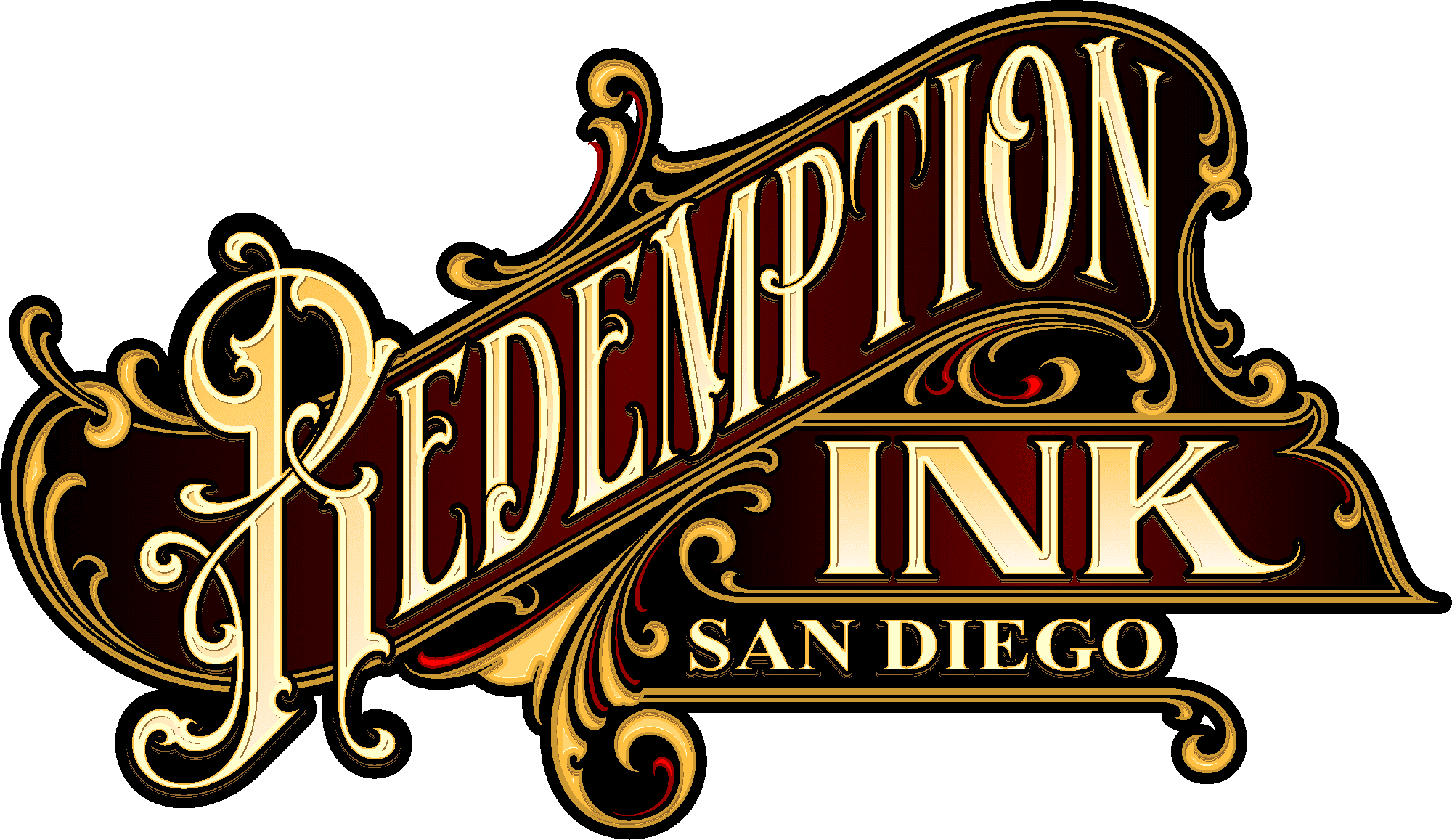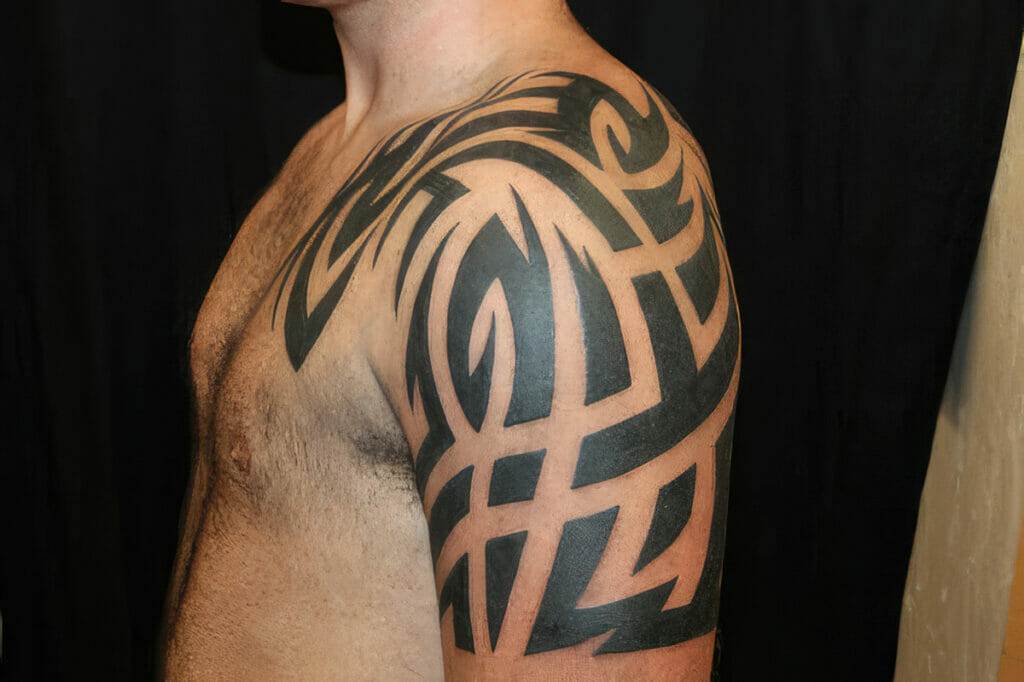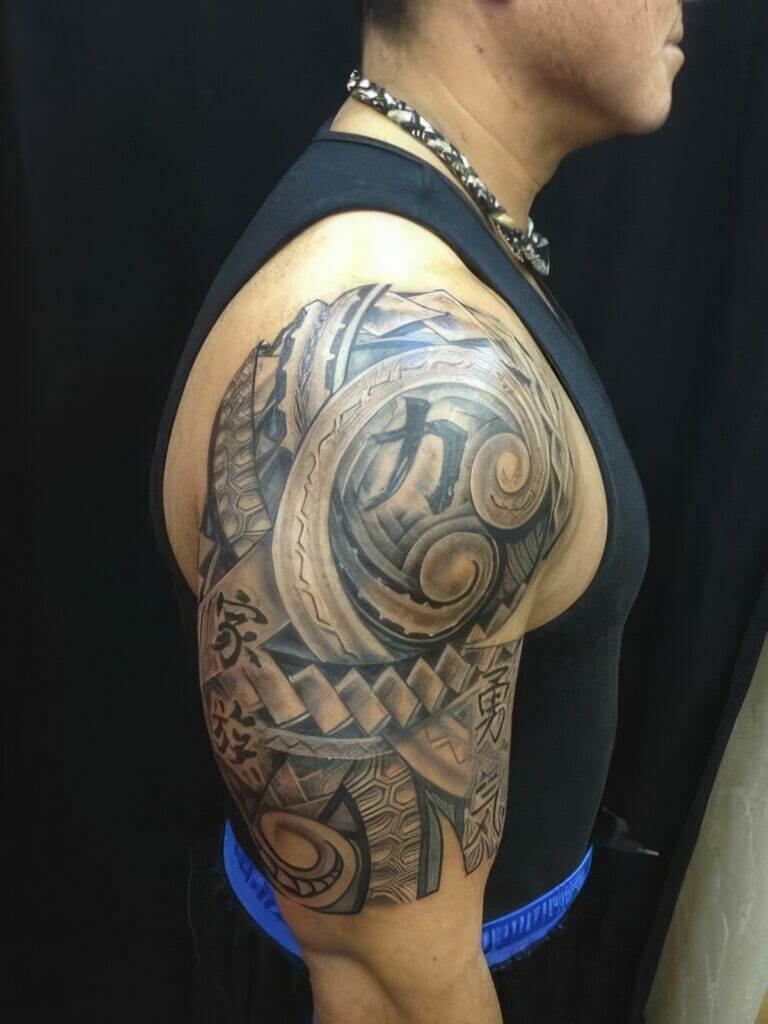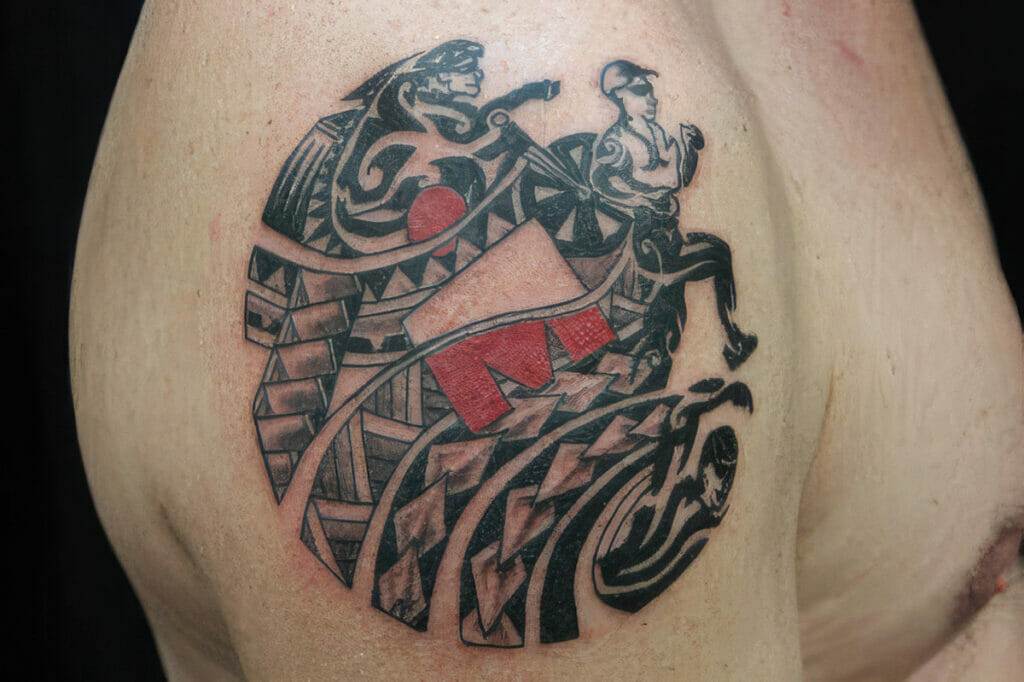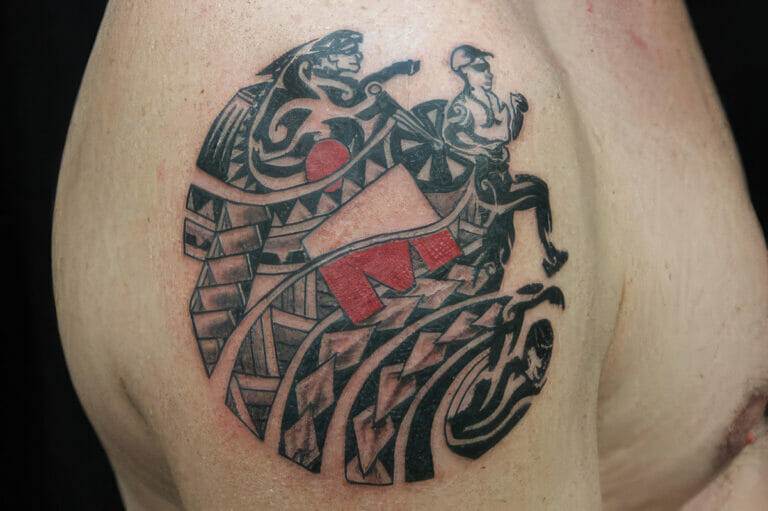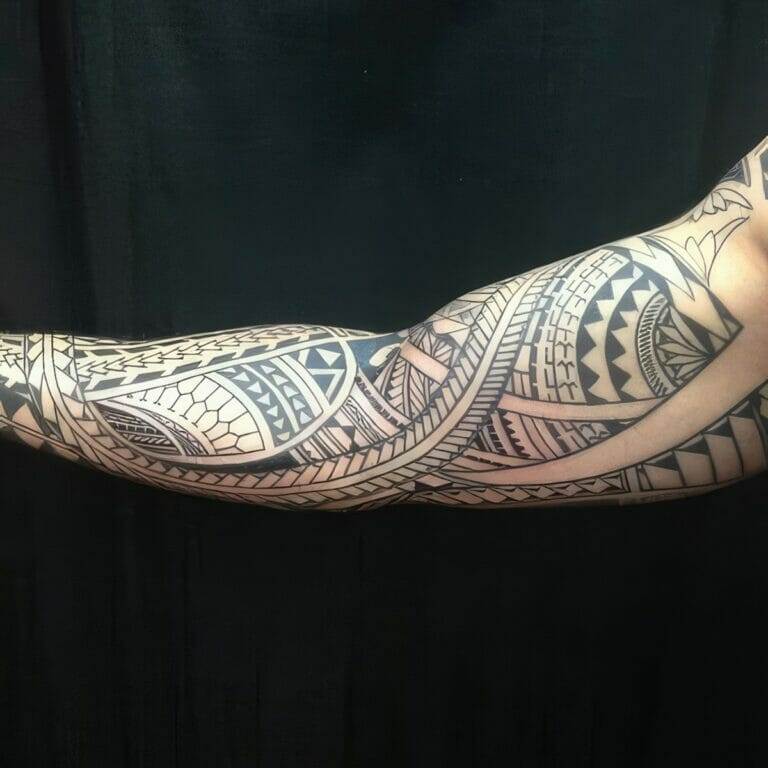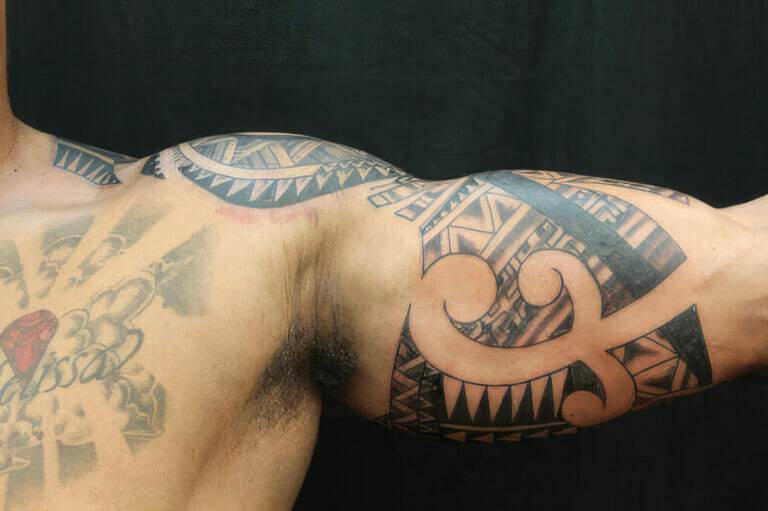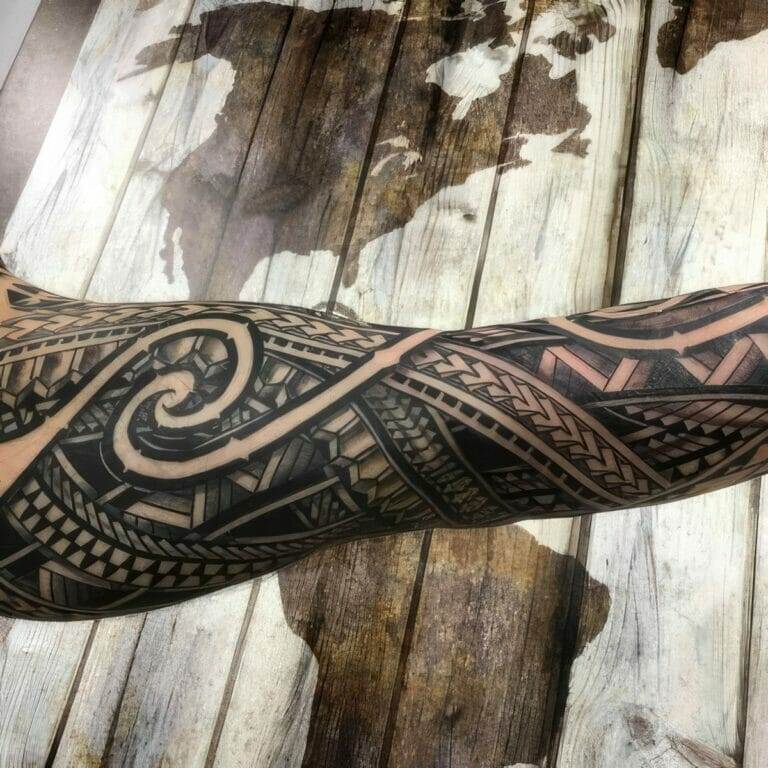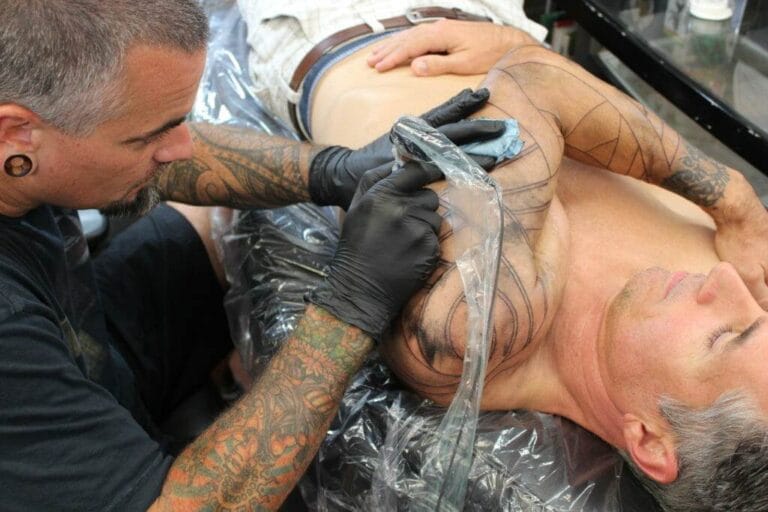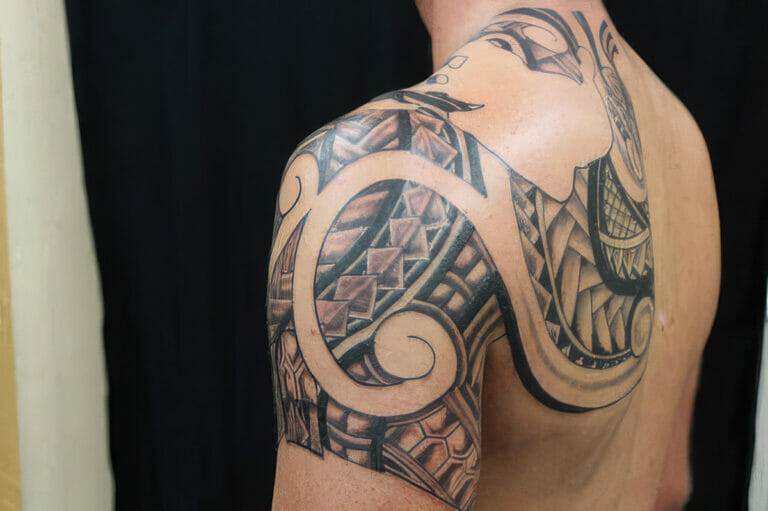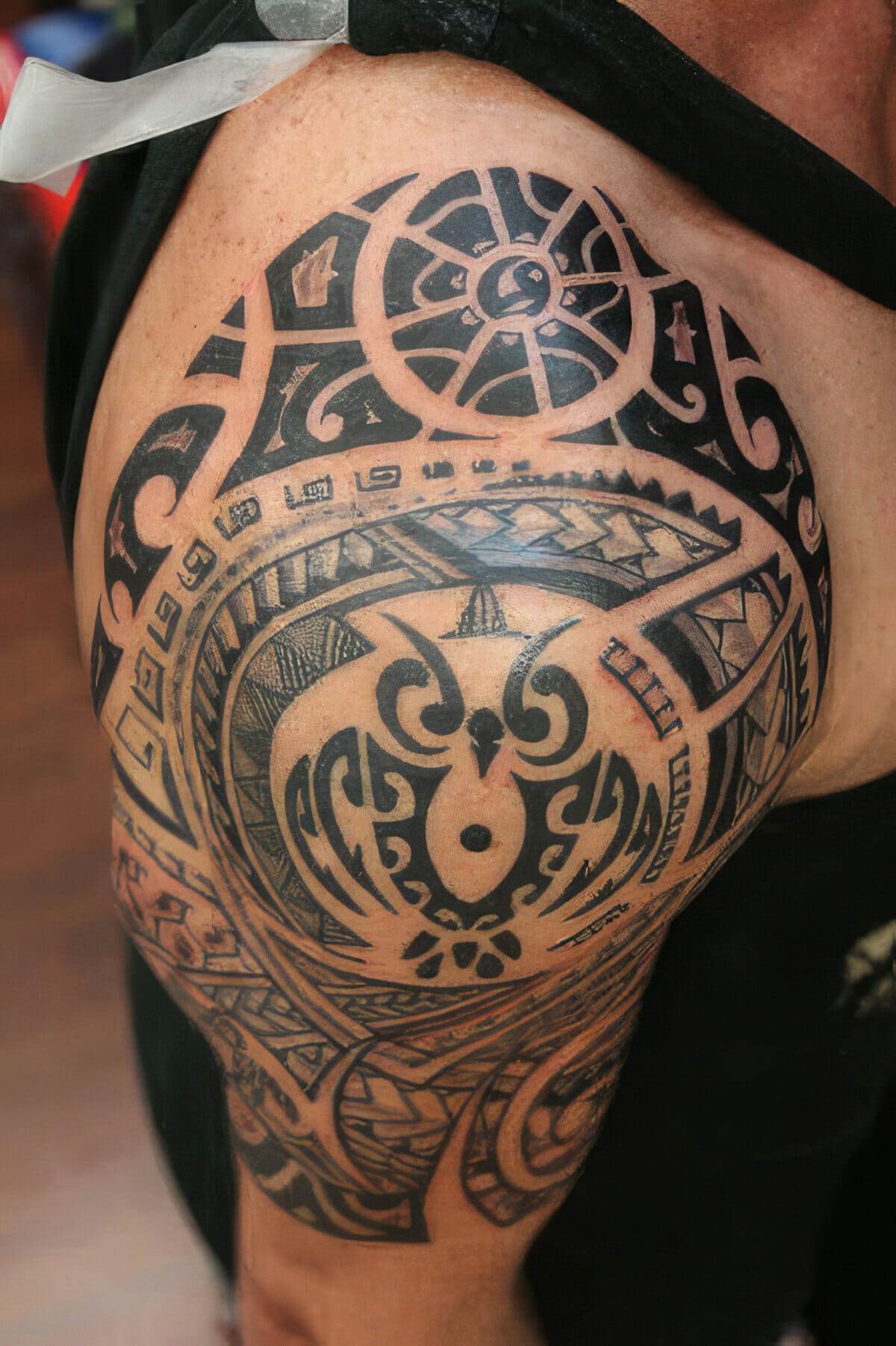
Polynesian tattoos have a rich cultural history and hold significant meaning within Polynesian communities. These tattoos are not just a form of body art, but a way to express one’s identity, heritage, and spirituality. Polynesian tattooing traditions have been passed down through generations, and their symbolism and designs continue to captivate people around the world. In this article, we will explore the history and significance of Polynesian tattoos, their cultural importance, their role in self-expression and identity, the symbolism behind their designs, their influence on contemporary art and fashion, the debate surrounding cultural appropriation, the importance of understanding and respecting Polynesian tattoo culture, their role in healing and spiritual connection, and the future trends and innovations in Polynesian tattooing.
The History and Significance of Polynesian Tattoos
Polynesian tattooing has its origins in ancient Polynesia, where it was practiced by various indigenous cultures such as the Maori, Samoans, Tahitians, and Hawaiians. These tattoos were not just decorative; they held deep cultural and spiritual significance. Traditional Polynesian tattooing techniques involved using bone or shark teeth as tools to puncture the skin and insert ink made from natural pigments. The process was painful and time-consuming but was seen as a rite of passage and a way to connect with one’s ancestors.
Polynesian tattoo designs are characterized by intricate patterns and symbols that hold specific meanings. These designs often depict elements from nature such as waves, turtles, sharks, and birds. Each symbol has its own significance; for example, waves represent life’s ups and downs, while turtles symbolize fertility and longevity. These designs were not chosen arbitrarily; they were carefully selected based on an individual’s lineage, achievements, or personal experiences.
The Cultural Importance of Polynesian Tattooing Traditions
In Polynesian culture, tattoos play a significant role in personal and communal identity. They are seen as a way to honor one’s ancestors, showcase one’s achievements, and express one’s connection to the land and sea. Polynesian communities have a strong sense of cultural pride, and tattoos are a visible representation of this pride. They serve as a reminder of one’s heritage and act as a form of cultural preservation.
Tattoos also play a role in establishing social status within Polynesian communities. In some cultures, certain tattoo designs were reserved for chiefs or warriors, while others were exclusive to women or men. These tattoos served as a visual indicator of an individual’s rank or role within the community.
Preserving Polynesian tattooing traditions is crucial for maintaining cultural identity and heritage. As globalization continues to impact indigenous cultures, there is a risk of losing these traditional practices. Efforts are being made to document and revive traditional tattooing techniques, ensuring that future generations can continue to connect with their cultural roots.
The Evolution of Polynesian Tattoos in Modern Society
In recent years, Polynesian tattoos have gained popularity in mainstream culture. Many people are drawn to the intricate designs and the deep symbolism behind them. However, with this increased popularity comes the risk of diluting the cultural significance of these tattoos.
Modern tattooing techniques and designs have been incorporated into Polynesian tattooing practices. Tattoo artists now use electric tattoo machines instead of traditional tools, allowing for faster and more precise work. Additionally, contemporary designs influenced by other tattooing styles have emerged, blending traditional Polynesian motifs with modern aesthetics.
Globalization has also had an impact on Polynesian tattooing traditions. As people from different cultures get Polynesian tattoos, there is a risk of cultural appropriation. It is important for individuals to understand and respect the cultural significance behind these tattoos and not treat them as mere fashion statements.
The Role of Polynesian Tattoos in Self-Expression and Identity
For many individuals, getting a Polynesian tattoo is a deeply personal and meaningful experience. These tattoos allow people to express their individuality, connect with their cultural heritage, and showcase their values and beliefs. Polynesian tattoos can serve as a form of self-empowerment, allowing individuals to reclaim their identity and assert their place in the world.
Tattoos also play a significant role in cultural identity. For Polynesians living outside of their homelands, these tattoos serve as a visual reminder of their roots and help them maintain a connection to their culture. They act as a form of cultural expression and allow individuals to proudly display their heritage.
The Symbolism and Meaning Behind Polynesian Tattoo Designs
Polynesian tattoo designs are rich in symbolism and meaning. Each symbol represents something specific, and understanding the significance behind these designs is crucial for appreciating Polynesian tattoo culture.
Common Polynesian tattoo motifs include waves, turtles, sharks, birds, and tribal patterns. Waves symbolize the ups and downs of life, representing resilience and adaptability. Turtles are associated with fertility, longevity, and protection. Sharks represent strength, power, and adaptability. Birds symbolize freedom, guidance, and spirituality. Tribal patterns often represent lineage or personal achievements.
It is important to note that these symbols may vary slightly between different Polynesian cultures. Each culture has its own unique set of symbols and meanings, reflecting the diversity within the Polynesian region.
The Influence of Polynesian Tattoos on Contemporary Art and Fashion
Polynesian tattoos have had a significant impact on contemporary art and fashion. Many artists draw inspiration from Polynesian tattoo designs, incorporating them into their artwork. These designs can be seen in paintings, sculptures, and even street art.
In the fashion industry, Polynesian tattoo-inspired designs have become increasingly popular. Clothing brands often incorporate Polynesian motifs into their designs, creating a fusion of traditional and modern aesthetics. This has helped bring Polynesian tattoo culture to a wider audience, but it is important to ensure that these designs are respectful and do not appropriate or exploit the culture.
The Cultural Appropriation Debate Surrounding Polynesian Tattoos

Cultural appropriation is a contentious issue when it comes to Polynesian tattoos. Cultural appropriation refers to the adoption or use of elements from another culture without understanding or respecting their cultural significance. In the case of Polynesian tattoos, non-Polynesians getting these tattoos without understanding their cultural meaning can be seen as a form of appropriation.
It is important for individuals to educate themselves about the cultural significance behind Polynesian tattoos before getting one. This includes understanding the symbols and meanings behind the designs, as well as respecting the cultural practices and beliefs associated with them. It is also crucial to support and uplift Polynesian tattoo artists and communities, rather than appropriating their culture for personal gain.
The Importance of Understanding and Respecting Polynesian Tattoo Culture
To ensure the preservation and respect of Polynesian tattoo culture, education and awareness are key. It is important for individuals to understand the history, significance, and symbolism behind these tattoos before getting one. This includes researching the cultural practices and beliefs associated with Polynesian tattooing traditions.
Respecting Polynesian tattoo culture also means supporting and uplifting Polynesian tattoo artists and communities. By seeking out authentic Polynesian tattoo artists and supporting their work, individuals can contribute to the preservation of these traditions.
Polynesian Tattooing as a Form of Healing and Spiritual Connection
In addition to their cultural significance, Polynesian tattoos also hold spiritual meaning for many individuals. Tattooing is seen as a form of healing and spiritual connection in Polynesian culture. The process of getting a tattoo can be a transformative experience, allowing individuals to connect with their ancestors and tap into their spiritual energy.
Tattoos can also serve as a form of protection and guidance. In Polynesian culture, it is believed that tattoos act as a shield, protecting the wearer from harm and guiding them on their life journey. This spiritual connection is deeply personal and unique to each individual.
The Future of Polynesian Tattooing: Trends and Innovations
Polynesian tattooing continues to evolve and adapt to modern times. Emerging trends in Polynesian tattooing include the incorporation of contemporary designs and techniques. Tattoo artists are finding new ways to blend traditional Polynesian motifs with modern aesthetics, creating unique and innovative designs.
Advancements in tattooing techniques and tools have also had an impact on Polynesian tattooing. Electric tattoo machines allow for faster and more precise work, while new pigments and inks offer a wider range of colors and effects. These innovations have made Polynesian tattooing more accessible to a wider audience.
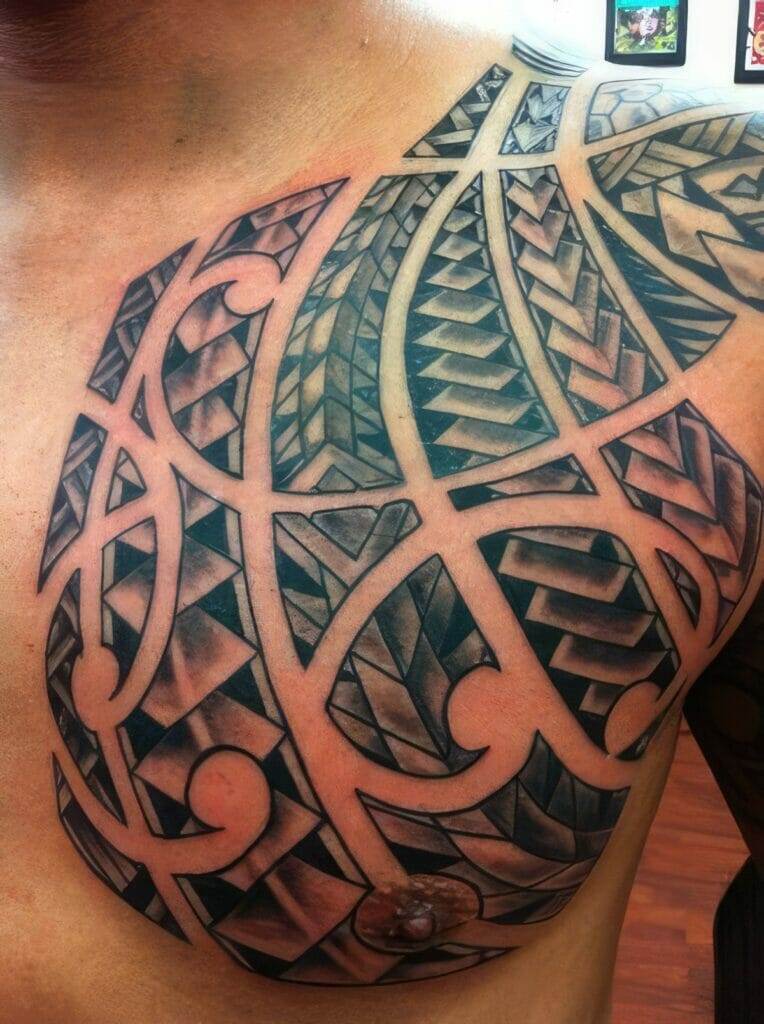
Celebrating Diversity and Individuality through Polynesian Tattoo Artistry
Polynesian tattoo artistry celebrates diversity and individuality. Each tattoo design is unique to the individual, reflecting their personal experiences, values, and beliefs. Polynesian tattoos allow individuals to express themselves authentically and proudly showcase their cultural heritage.
By embracing diversity and individuality, we can appreciate the beauty and significance of Polynesian tattoo artistry. These tattoos are not just a form of body art; they are a testament to the resilience, strength, and cultural pride of Polynesian communities.
Polynesian tattoos hold deep cultural significance within Polynesian communities. They are not just decorative; they are a way to express one’s identity, heritage, and spirituality. Understanding and respecting the history, symbolism, and cultural practices associated with Polynesian tattooing is crucial for preserving and celebrating this rich cultural tradition. By supporting and uplifting Polynesian tattoo artists and communities, we can ensure that these traditions continue to thrive and inspire future generations.
